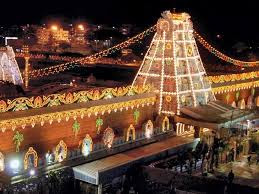The Realisation of the Absolute :3-4-3.

Chapter 3: The Need for Integral Knowledge -4 4. UNITY BEHIND DIVERSITY-3 The ordinary man of the world has his mind and senses turned extrovert. Childish, he runs after external pleasures and walks into the net of death which pervades all created things. The wise, however, knowing the Immortal, seek not that Eternal Being among things fleeting here. Some blessed one turns his gaze inward and beholds the glorious light of the Self. This Self is dearer than the dearest of things, this Self is nearer than the nearest. If one would speak of anything else than the Self as dear, he would certainly lose what he holds as dear. One should adore the Self alone as dear. He who adores the Self alone as dear does not lose what he holds as dear. The Self is Imperishable. It is further suggested that by going to the source of things we know the essential nature of things, even as by grasping the drum or the beater of the drum we grasp the sound produced by the drum. The ...













